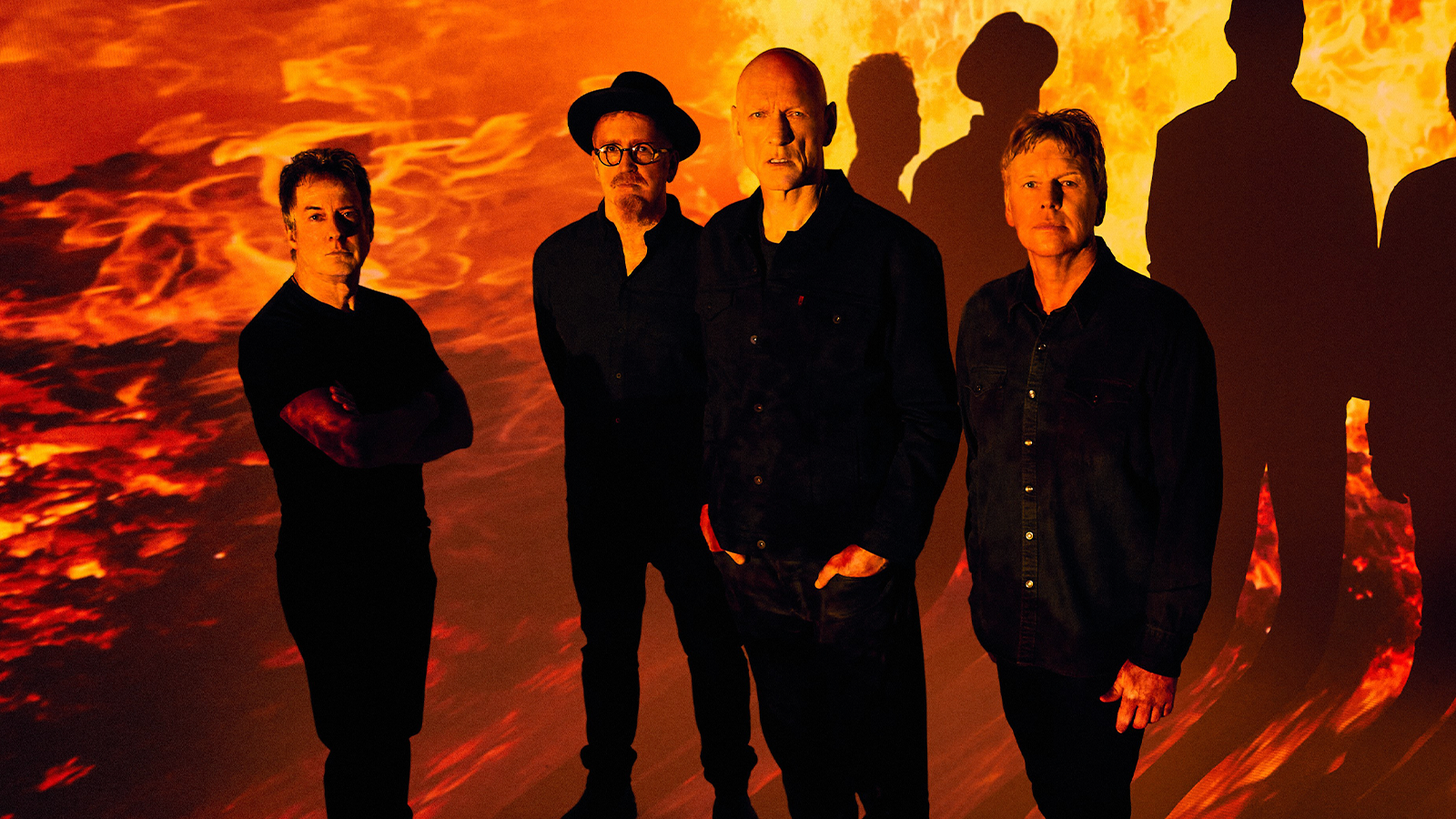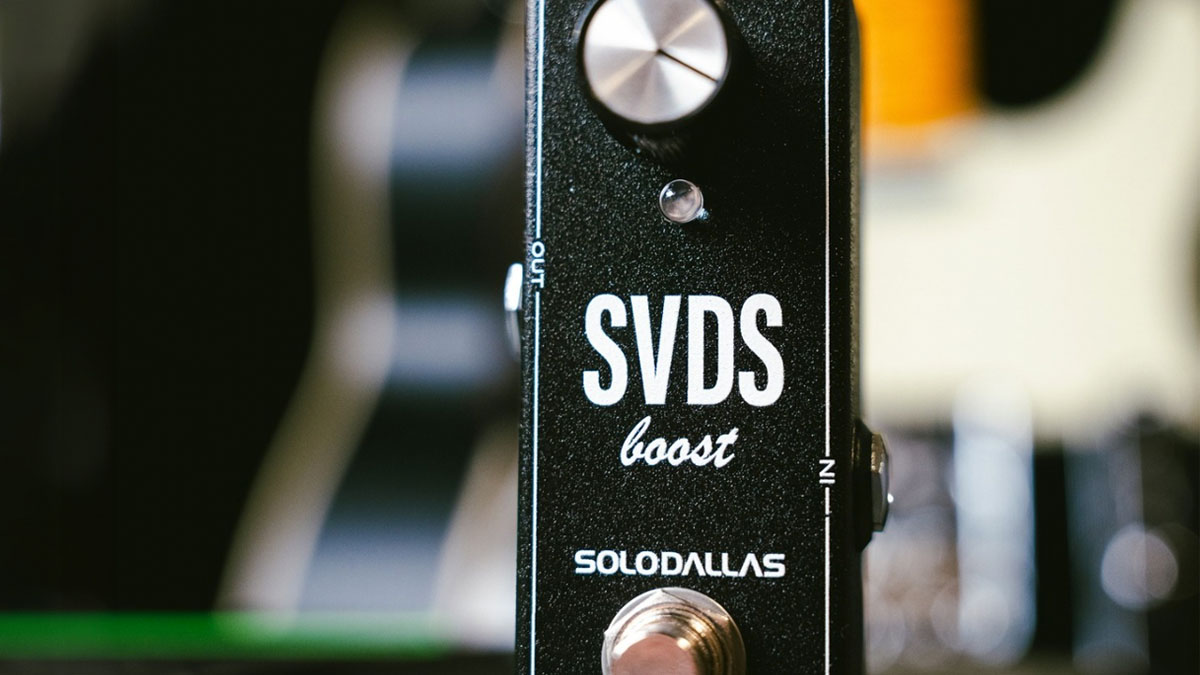Midnight Oil: “There’s a generational shift that’s happening, and I can feel it in the water”
Two decades on from their last album, Midnight Oil’s poignancy hasn’t wavered one bit. We explore the origins of their powerful new effort, Resist.

The world has changed a lot since 2002, to say the very least. Up until that December, Midnight Oil had thrived as Australia’s premiere protest band, cranking out a lengthy string of rock hits as poignant politically as they were musically. And though its members stayed active in the social justice movements of the 21st century – frontman Peter Garrett even going so far as to become a minister – the band itself called it quits after their 11th album, 2002’s Capricornia.
Now – amid a global pandemic, a myriad of disasters incited by climate change, the mainstream rise of far-right malice and World War III on the cusp of eruption – the Oils have returned to soundtrack the revolution of the 2020s. As longstanding axeman Jim Moginie tells Australian Guitar, the band now see themselves as the elders of Australia’s political rock movement. But that doesn’t make Resist – their 12th full-length effort, riding on the heels of last year’s mini-LP The Makarrata Project – any less intense, provocative or insightful.
We talk to Moginie about the whirlwind origins of both Resist and The Makarrata Project, how the new record makes the most of the Oils’ legacy, and how 15 years of creative exploration reignited the shredder’s musicality.
What was it like to work on Resist and The Makarrata Project concurrently?
We had a really concentrated period of recording. I’ve got a little studio up in Sydney, and that effectively became the Midnight Oil clubhouse. And because it’d been such a long time since we’d been in the studio, the songs just came pouring out. Pete had some a few of these Syd Barrett-y kind of songs, which was really fascinating and weird. And then Rob had ‘First Nation’ and ‘Gadigal Land’, which made us all think, “Whoa, game on!”
We banded down real fast. We just didn’t muck around, because we thought, “Well, a band like us, we’ll just play it live.” We knew the songs pretty well by then – we had the demos, and we pretty much just followed the demos. We’d even use some of the sounds from the demos in the actual recordings – some of the sounds that were a bit wobbly and ethereal, or hard to recreate. We did most of the recording in about a six week period – five-day weeks, eight-hour days.
With the kind of legacy Midnight Oil has – especially 20 years since Capricornia – we know that you wouldn’t have put this album out if you didn’t need to put it out. What makes Resist such a critical record in the Midnight Oil catalogue?
We’re almost like the elders now, y’know? People like Jack River and John Butler are doing great things with activism and music together, and I get the feeling that – especially recently, with Grace Tame and Brittany Higgins in Canberra – there’s this change afoot. There’s a generational shift that’s happening, and I can feel it in the water. But I think music and politics have always gone together. Look at ‘A Change Is Gonna Come’ by Sam Cooke – that’s one of the most beautiful protest songs ever written.
I feel like we’re part of this grand tradition – we’re kind of standing on the shoulders of those people. And I don’t think there’s anything particularly new in what we’re saying. This album, Resist, is basically a protest record. And in the grand tradition of protest records, every song is about an issue. I think that’s just who we are as people, y’know?
Get The Pick Newsletter
All the latest guitar news, interviews, lessons, reviews, deals and more, direct to your inbox!
But I also think that you can’t just have someone strumming on a G chord for 20 minutes, going on about how f***ed capitalism is and yelling about, “Down with the man! Patriarchy! Blah, blah, blah!” You need a good tune and a cracking beat, a good melody and a hook. And I think [Midnight Oil] do that well, because we love our music. We’re always suckers for a good tune, whether it’s a political song or not.
You kept wickedly busy during the Oils’ hiatus, between a multitude of other projects, and all your production work. Did you find that when you came back to the Oils, you did so with a new, or expanded palette of skills?
Yeah, definitely. Up until that period of time when Pete went into politics, we were very much a group, very cloistered and very sheltered – we weren’t very open to the world. But when the band split up, I suddenly found myself in this amazing musical community. I was doing session work on the Kasey Chambers record, producing Sarah Blasko and Silverchair, and playing with Bill Chambers. I mean, it was just meeting all the people, and seeing how different people’s viewpoints were and where they were coming from, that’s what was most interesting.
I also did a thing called the Electric Guitar Orchestra, when I was an artist in residence out at Campbelltown Art Centre. That was very much inspired by the works of Glenn Branca and Rhys Chatham – that New York no-wave guitar scene, that was very much in my head when the Oils came back together. It was a process of just using textures, or just flat ribbons of sound across a song, just to give it some tension or some background information; it wasn’t so much about playing a song, but just creating an atmosphere. And I think that’s pervaded quite a few of the songs on Resist.
But of course, it’s all me and Martin, and Martin is my favorite guitar player in the world. Just standing alongside him every night, it’s such a great honor. I never get sick of it; I never get sick of his sound.
What’s that chemistry like between yourself and Mr. Rotsey, 45 years on?
We’re very different players, but that’s what’s great about it. He’s always up for experimenting and trying different things, so it’s really beautiful to have that relationship back again. But guitar-wise, it’s sort of like… Y’know, I remember when I was kid, standing in front of The Masters Apprentices at the Easter Show – I stood there and I looked at Doug Ford, he was using a Lenard amp and it was this huge wall of sound. And the sound was thick – it wasn’t bright, it was very strong – and that burned into my brain what a guitar should sound like.
There’s a lost Australian guitar sound, I have to say, because those amps – VASE, Lenard, Goldentones, Maton, Strauss – all of those amps were Australian-made, but of course when all the Marshalls and Fenders came in, we became like all the other countries. It’s a great era to go back to, because the guitarists were sort of playing Deep Purple or Free-inspired music, but the sound of it was really different. It had this incredible heft to it – this real weightiness. I remember going to see Kevin Borich Express and The La De Da’s – bands like that – and that sound really... It was such a beautiful thing. It’s a shame it’s been lost.
Now, it’s a totally different thing – everyone uses virtual amps, or they have little amps because sound guys always complain about the guitarists’ volume onstage. There’s become a law of diminishing returns, I think – because in the old days, those amps were designed to project to the back of the room, and that’s not what happens now with the digital PA systems. It was a very different sound, with the old analog boards and the Yamaha EMX2000s.

Ellie Robinson is an Australian writer, editor and dog enthusiast with a keen ear for pop-rock and a keen tongue for actual Pop Rocks. Her bylines include music rag staples like NME, BLUNT, Mixdown and, of course, Australian Guitar (where she also serves as Editor-at-Large), but also less expected fare like TV Soap and Snowboarding Australia. Her go-to guitar is a Fender Player Tele, which, controversially, she only picked up after she'd joined the team at Australian Guitar. Before then, Ellie was a keyboardist – thankfully, the AG crew helped her see the light…
- Ellie RobinsonEditor-at-Large, Australian Guitar Magazine
“Such a rare piece”: Dave Navarro has chosen the guitar he’s using to record his first post-Jane’s Addiction material – and it’s a historic build
“The best guitar player I ever heard”: Nashville guitar extraordinaire Mac Gayden – who worked with Bob Dylan, Elvis, Linda Ronstadt and Simon & Garfunkel – dies at 83





![[from left] George Harrison with his Gretsch Country Gentleman, Norman Harris of Norman's Rare Guitars holds a gold-top Les Paul, John Fogerty with his legendary 1969 Rickenbacker](https://cdn.mos.cms.futurecdn.net/TuH3nuhn9etqjdn5sy4ntW.jpg)




